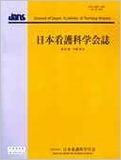Japanese
English
- 販売していません
- Abstract 文献概要
- 参考文献 Reference
- サイト内被引用 Cited by
要旨
目的:既卒採用者の離職の状況が不明であることから,全国的な調査を行い,既卒看護師の採用・離職の特徴を明らかにする.
方法:都道府県毎の病院数や病床数によって層化し,無作為抽出された1,200病院の看護部門長を対象に,病院属性と2013年度の採用数および年度内離職者数を尋ねる質問紙調査を行った.既卒と新卒の結果について比較した.
結果:246施設の回答を分析した.2013年度に採用を行った施設は240病院であった.既卒者は300床未満,一般病院,療養病床や精神病床を主とする病院で採用され,新卒者は300床以上,特定機能病院や地域医療支援病院,一般病床を主とする病院で採用される傾向があった.また,新卒は非常勤採用が0.8%とほぼ常勤で採用されるのに対し,既卒は24.3%が非常勤採用であった.採用年度内の離職率は新卒7.9%に対し既卒は17.9%と高く,特に100床未満の病院において既卒者が離職しやすい傾向があった.
結論:既卒採用者は,新卒採用者より早期離職に至りやすく,定着対策,離職対策を早急に検討する必要がある.
Purpose: The aim of the survey was to identify the characteristic of employment and turnover of experienced nurses at Japanese Hospitals.
Method: Stratified sampling by hospital size identified 1,200 Japanese hospitals invited to participate in the survey. Nurse executives from each hospital provided the number of experienced nurses who were hired and left within 2013. The same data about newly graduated nurses were also collected for comparison.
Results: Returned were 246 valid responses. Experienced nurses tended to be hired by smaller, long-term care and psychiatric hospitals; by contrast newly graduated nurses were hired by larger and advanced treatment hospitals. While 75.7% of experienced nurses were hired full-time compared to 99.2% new graduates, 24.3% of experienced nurses were hired part-time compared to 0.8% of new graduates. The turnover rate of experienced nurses was 17.9%, and was higher than 7.9% for new graduates. Smaller hospitals with under 100 beds had difficulty in retaining experienced nurses.
Conclusion: The retention of experienced nurses was much lower compared to new graduates. It is proposed that each hospital develop tactics tailored to support experienced nurses continuing with their employment.
Copyright © 2017, Japan Academy of Nursing Science. All rights reserved.


